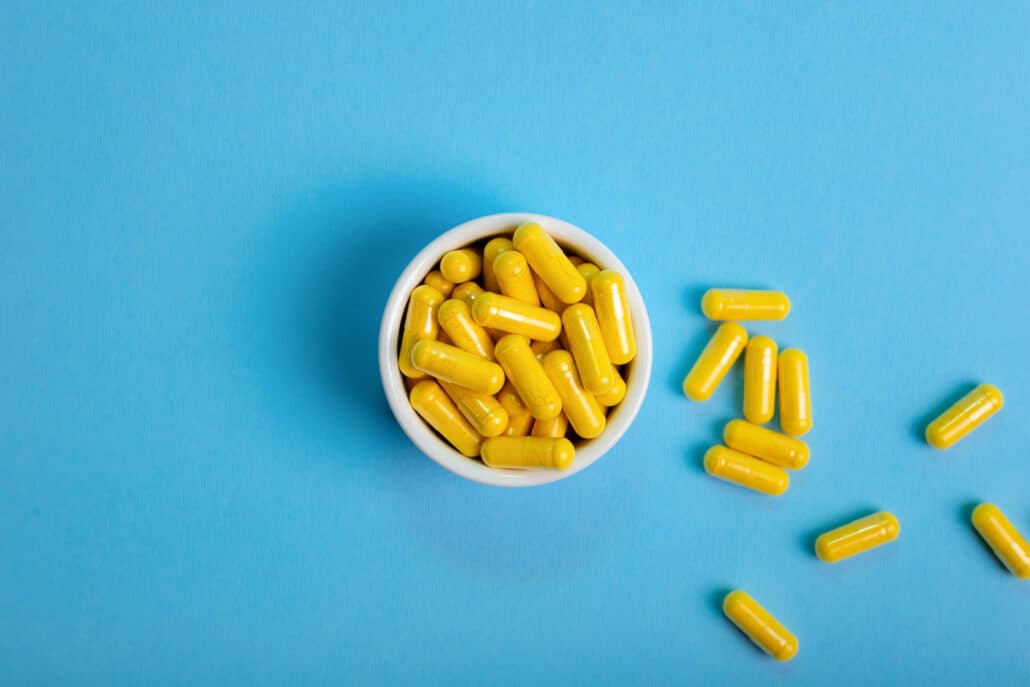Mental health is one of the more complicated areas of human well-being. It can take decades –if ever– to fully understand some of the related conditions, and finding effective treatments can be highly challenging.
MDD, short for major depressive disorder and commonly known as depression, is a mental disorder that’s been heavily studied and yet leaves a lot to be discovered. Recovering from it can be particularly tricky as every patient’s case is unique with different causes and responses to treatment.
Exxua is a medication developed specifically for treating adults suffering from MDD. This novel drug has been over two decades in the making and has just received FDA approval in 2023.
Today’s guide explores everything you need to know about what Exxua is, from how it works and its advantages to its side effects and dosing information. We’ll also discuss this antidepressant’s potential for addiction.
Table of Contents
What Is Exxua?
Exxua is a new antidepressant medication developed by Fabre-Kramer Pharmaceuticals. The FDA approved this drug in September 2023 as a treatment for MDD (major depressive disorder).

However, the road to gaining the FDA’s approval was paved with rigorous testing and clinical trials.
The journey started in 2002, and despite the controversy surrounding its approval process, Exxua successfully presented enough evidence of efficacy to end its streak of ‘not approvable’ letters.
Exxua represents the first member of a novel class of antidepressants referred to as 5HT1A receptor agonists. In other words, it’s the first and only drug of its kind currently on the market.
How Does Exxua Work?
The active ingredient in Exxua is called gepirone, an azapirone drug. Its mechanism of action for treating MDD is a two-part approach to alter the brain’s serotonin levels, producing both antidepressant and anxiolytic effects.
So how does Exxua work?
The first part of its strategy is to activate the serotonin receptors known as 5-HT1A receptors.
Gepirone binds selectively and partially, working on one of the most prevalent serotonin receptors in the brain. Research suggests that the reduced activation of these receptors and their dysfunction contribute majorly to the development of MDD.
Through 5-HT1A receptors, gepirone triggers better serotonin signaling and transmission, which helps combat depression’s symptomatic feelings such as sadness, aloofness, and disinterest.
Additionally, gepirone reduces the activity of 5-HT2A receptors throughout the CNS (central nervous system), especially at the centers of cognition and learning. It does so by acting as an antagonist at the sites of those receptors, exhibiting antidepressant and antipsychotic properties.
Studies suggest that the elevated activity of 5-HT2A receptors is linked to depression, substance abuse, schizophrenia, and several other mental disorders.
What Are the Main Advantages of Exxua?
Exxua addresses various unmet needs in existing MDD medications. The condition itself is characterized by great heterogeneity, so a fresh approach is always welcomed.
What makes gepirone even more interesting is that it also comes with a set of unique benefits that set it ahead of other antidepressants. These include:
Unprecedented Selectivity
Exxua is the first and only oral medication that exclusively targets 5-HT1A receptors.
The closest drug to its structure is known as buspirone, which is nowhere near as selective. Compared to it, gepirone has up to 50 times lower affinity to other receptors such as D@ receptors.
This selectivity provides Exxua with significant efficacy in alleviating mood- and anxiety-related symptoms of depression, including unhappiness and lack of motivation.
Lack of Sexual Dysfunction
SSRIs (selective serotonin reuptake inhibitors) and SNRIs (serotonin/norepinephrine reuptake inhibitors) antidepressants are commonly prescribed for patients struggling with major depressive disorder.
However, one of the common adverse effects of these classes of medication is sexual dysfunction. This is why Exxua can be a more suitable alternative for those who experience erectile dysfunction with SSRIs or SNRIs.
This advantage of Exxua is due to its low affinity to D2 receptors, which control a range of physiological functions relating to dopamine levels in the brain.

Dopamine is associated with sexual functions, so by non-selectively binding to D2 receptors, SSRIs and SNRIs cause alteration in sexual arousal and performance. With gepirone, the impact of antidepressants on patients’ sex lives can be avoided.
- Note that sexual dysfunction issues may be due to depression, not a medication’s side effects. As such, patients must consult their healthcare providers to figure out the cause of their sex life decline.
No Weight Gain
Other commonly prescribed classes of drugs for patients suffering from major depressive disorder are MAOIs (monoamine oxidase inhibitors) and TCAs (tricyclic antidepressants). These drugs are known for causing weight gain as a side effect.
Again, this is due to the binding of the MAOIs and TCAs to D2 receptors, which affects dopamine signaling. Since dopamine is involved in regulating the brain’s reward system, sense of appetite, and food intake, disrupting its levels can lead to weight gain.
Thanks to the low affinity of gepirone to D2 receptors, Exxua doesn’t cause exaggerated feelings of hunger, and consequently, no weight gain is noticed as a side effect.
As such, Exxua can be an effective alternative for MDD patients worried about body weight risks.
Supports Sustained Release
The formula of Exxua is designed to be extended release, which means that the drug can keep a gradual and consistent flow of its active ingredient. As a result, the therapeutic level of the medication is maintained at stable values throughout the day.
Unlike immediate-release antidepressants, Exxua supports a more uniform treatment experience with a once-a-day dosing system. This convenience helps boost patient adherence to treatment.
What Are the Side Effects of Exxua?
Although Exxua is a well-tolerated antidepressant that doesn’t cause sexual dysfunction or weight gain, there’s still a possibility of certain side effects manifesting in patients using it.
Some of Exxua’s adverse events are more common or severe than others. Here’s a breakdown of its unfavorable symptoms:
Common Risks
These are side effects with an incidence rate of over 10%.
- Dizziness
- Sleeping disturbances
- Nausea
- Feeling tired
- Feeling drowsy
- Headaches
Possible Risks
These are side effects with an incidence rate of less than 10%.
- Diarrhea
- Dry mouth
- Upper respiratory tract infection
- Abdominal pain
- Vomiting
- Indigestion (dyspepsia)
- Constipation
- Nasal congestion
- Nose and throat inflammation
- Heartburn
- Tingling or numbness sensation (paresthesia)
- Agitation
- Excessive sweating (hyperhidrosis)
- Feeling jittery
- Lethargy
- Breast tenderness
- Elevated heart rate
- Increased weight
- Feeling confused
- Poor sleep quality
Serious Risks
These are life-threatening side effects that require immediate contact with a healthcare professional if you experience any of them.

Suicidal Thoughts or Self-harm Behaviors
This is an increased risk in individuals aged 24 and younger, which is why Exxua is disapproved for pediatric use.
This black box warning isn’t just found on Exxua but on most antidepressants. It’s more likely to occur after starting treatment (the first few months) or following a change in dosage.
Heart Rhythm Problems
Exxua can cause changes in electrical signals in the heart, also known as QT prolongation. This can lead to an erratic heart rate.
Symptoms include dizziness, fainting, and sudden collapse. This disruption of heartbeats can lead to death, especially in patients with heart issues.
Manic Episodes
The risk of manifesting manic or hypomanic episodes is associated with a diagnosis of bipolar disorder while using Exxua. Symptoms to look out for include;
- Feeling extremely excited
- Feeling excessively energetic
- Having racing thoughts
- Exaggerated feelings of happiness
- Increased agitation
- Talking a lot more than usual and very quickly
- Engaging in risky behaviors
- Severe sleeping issues
Serotonin Syndrome
Symptoms of this side effect include;
- Agitation
- Hallucinations
- Fever
- Shivering
- Sweating
- Nausea and vomiting
- Diarrhea
- Elevated heart rate
- Twitching
- Muscle stiffness
- Seizures
- Loss of coordination
- Hallucinations
- Coma
What Are the Contraindications of Exxua?
You should not take Exxua if you:
- Are allergic to gepirone or any of the medication’s inactive ingredients
- Suffer from severe liver disease
- Have an existing QTc interval prolongation (more than 450 msec at baseline)
- Suffer from long QT syndrome since birth
- Take another drug that blocks the CYP3A4 enzyme
- Currently using MAOIs or within the last 2 weeks
What Is the Standard Dosing for Exxua?
Exxua is available as extended-release tablets with strengths of 18.2 mg, 36.3 mg, 54.5 mg, and 72.6 mg. The typical starting dose is 18.2 mg per day.

Is Exxua Addictive?
Exxua is generally considered a non-addictive prescription drug. Studies suggest that azapirones such as gepirone have little to no potential for abuse.
Conclusion: A Revolutionary Step in Depression Treatment
Exxua opened up extra paths for treating adults with MDD and offers multiple advantages to its use. It overcomes common antidepressant side effects such as weight gain and sexual dysfunction, in addition to boosting patient compliance with its sustained-release formula.
What’s more, Exxua is considered a non-addictive prescription antidepressant, which can be very valuable in developing treatment options for prescription drug abuse.
Please contact Long Island Interventions for information about Exxua Addiction Treatment near you.
References
- https://www.ncbi.nlm.nih.gov/books/NBK559078/
- https://www.nimh.nih.gov/health/topics/depression#
- https://med.uth.edu/psychiatry/2024/01/29/a-new-dawn-fda-greenlights-exxua-gepirone-er-for-major-depressive-disorder/
- https://dailymed.nlm.nih.gov/dailymed/medguide.cfm?setid=28b360dc-6337-4cae-a5bb-79f974b5a3b2
- https://www.accessdata.fda.gov/drugsatfda_docs/label/2023/021164s000lbl.pdf
- https://pubmed.ncbi.nlm.nih.gov/1973938/
- https://www.sciencedirect.com/science/article/abs/pii/S1876201824000297.

